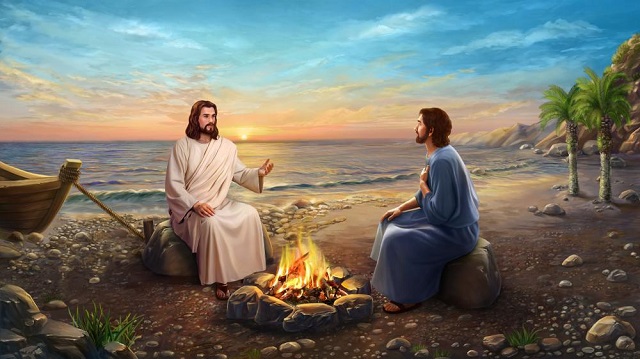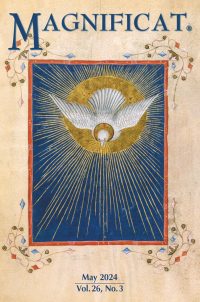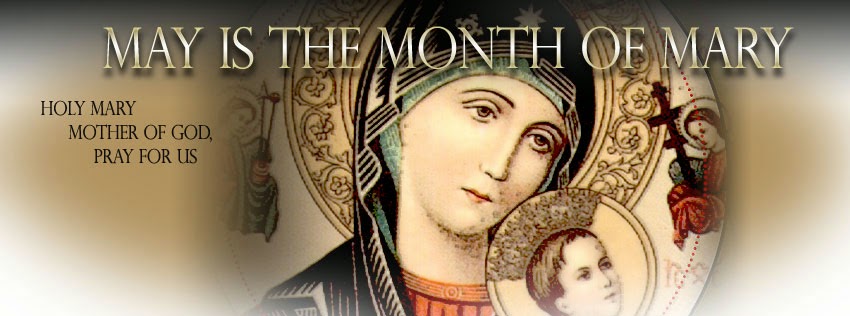
Catena Aurea by St. Thomas Aguinas
21. Peter seeing him saith to Jesus, Lord, and what shall this man do?
22. Jesus saith unto him, If I will that he tarry till I come, what is that to thee? follow thou me.
23. Then went this saying abroad among the brethren, that that disciple should not die: yet Jesus said not unto him, He shall not die; but, If I will that he tarry till I come, what is that to thee?
THEOPHYLACT. Peter hearing that he was to suffer death for Christ, asks whether John was to die: Then Peter, turning about, seeth the disciple whom Jesus loved following; which also leaned on His breast at supper, and said, Lord, which is he that betrayeth Thee? Peter seeing him saith to Jesus, Lord, and what shall this man do?
AUGUSTINE. (Tract. cxxiv) He calls himself the disciple whom Jesus loved, because Jesus had a greater and more familiar love for him, than for the rest; so that He made him lie on His breast at supper. In this way John the more commends the divine excellency of that Gospel which he preached. Some think, and they no contemptible commentators upon Scripture, that the reason why John was loved more than the rest, was, because he had lived in perfect chastity from his youth up. Then went this saying abroad among the brethren, that that disciple should not die: yet Jesus said not unto him, He shall not die; but, If I will that he tarry till I come, what is that to thee?
THEOPHYLACT. i. e. Shall he not die?
AUGUSTINE. (Tract. cxxiv) Jesus saith unto him, What is that to thee? and He then repeats, Follow thou Me, as if John would not follow Him, because he wished to remain till He came; Then went this saying abroad among the disciples, that that disciple should not die. Was it not a natural inference of the disciple’s? But John himself does away with such a notion: Yet Jesus said not unto him, He shall not die; but, If I will that he tarry till I come, what is that to thee? But if any so will, let him contradict, and say that what John says is true, viz. that our Lord did not say that that disciple should not die, but that nevertheless this was signified by using such words as John records.
THEOPHYLACT. Or let him say, Christ did not deny that John was to die, for whatever is born dies; but said, I will that he tarry till I come, i. e. to live to the end of the world, and then he shall suffer martyrdom for Me. And therefore they confess that he still lives, but will be killed by Antichrist, and will preach Christ’s name with Elias. But if his sepulchre be objected, then they say that he entered in alive, and went out of it afterwards.
AUGUSTINE. (Tract. cxxiv.) Or perhaps he will allow that John still lies in his sepulchre at Ephesus, but asleep, not dead; and will give us a proof, that the soil over his grave is moist and watery, owing to his respiration. But why should our Lord grant it as a great privilege to the disciple whom He loved, that he should sleep this long time in the body, when he released Peter front the burden of the flesh by a glorious martyrdom, and gave him what Paul had longed for, when he said, I have a desire to depart and be with Christ? If there really takes place at John’s grave that which report says, it is either done to commend his precious death, since that had not martyrdom to commend it, or for some other cause not known to us. Yet the question remains, Why did our Lord say of one who was about to die, I will that he tarry till I come? It may be asked too why our Lord loved John the most, when Peter loved our Lord the most? I might easily reply, that the one who loved Christ the more, was the better man, and the one whom Christ loved the more, the more blessed; only this would not be a defence of our Lord’s justice. This important question then I will endeavour to answer. The Church acknowledges two modes of life, as divinely revealed, that by faith, and that by sight. The one is represented by the Apostle Peter, in respect of the primacy of his Apostleship; the other by John: wherefore to the one it is said, Follow Me, i. e. imitate Me in enduring temporal sufferings; of the other it is said, I will that he tarry till I come: as if to say, Do thou follow Me, by the endurance of temporal sufferings, let him remain till I come to give everlasting bliss; or to open out the meaning more, Let action be perfected by following the example of My Passion, but let contemplation wait inchoate till at My coming it be completed: wait, not simply remain, continue, but wait for its completion at Christ’s coming. Now in this life of action it is true, the more we love Christ, the more we are freed from sin; but He does not love us as we are, He frees us from sin, that we may not always remain as we are, but He loves us heretofore rather, because hereafter we shall not have that which displeases Him, and which He frees us from. So then let Peter love Him, that we may be freed from this mortality; let John be loved by Him, that we may be preserved in that immortality. John loved less than Peter, because, as he represented that life in which we are much more loved, our Lord said, I will that he remain (i. e. wait) till I come; seeing that that greater love we have not yet, but wait till we have it at His coming. And this intermediate state is represented by Peter who loves, but is loved less, for Christ loves us in our misery less than in our blessedness: and we again love the contemplation of truth such as it will be then, less in our present state, because as yet we neither know nor have it. But let none separate those illustrious Apostles; that which Peter represented, and that which John represented, both were sometime to be.
GLOSS. I will that he tarry, i. e. I will not that he suffer martyrdom, but wait for the quiet dissolution of the flesh, when I shall come and receive him into eternal blessedness.
THEOPHYLACT. When our Lord says to Peter, Follow Me, He confers upon him the superintendence over all the faithful, and at the same time bids him imitate Him in every thing, word and work. He shews too His affection for Peter; for those who are most dear to us, we bid follow us.
CHRYSOSTOM. (Hom. lxxxviii. 2) But if it be asked, How then did James assume the see of Jerusalem? I answer, that our Lord enthroned Peter, not as Bishop of this see, but as Doctor of the whole world: Then Peter, turning about, seeth the disciple whom Jesus loved following, which also leaned on his breast at supper. It is not without meaning that that circumstance of leaning on His breast is mentioned, but to shew what confidence Peter had after his denial. For he who at the supper dared not ask himself, but gave his question to John to put, has the superintendence over his brethren committed to him, and whereas before he gave a question which concerned himself to another to put, he now asks questions himself of his Master concerning others. Our Lord then having foretold such great things of him, and committed the world to him, and prophesied his martyrdom, and made known his greater love, Peter wishing to have John admitted to a share of this calling, says, And what shall this man do? as if to say, Will he not go the same way with us? For Peter had great love for John, as appears from the Gospels and Acts of the Apostles, which give many proofs of their close friendship. So Peter does John the same turn, that John had done him; thinking that he wanted to ask about himself, but was afraid, he puts the question for him. However, inasmuch as they were now going to have the care of the world committed to them, and could not remain together without injury to their charge, our Lord says, If I will that he tarry till I come, what is that to thee? as if to say, Attend to the work committed to thee, and do it: if I will that he abide here, what is that to thee?
THEOPHYLACT. Some have understood, Till I come, to mean, Till I come to punish the Jews who have crucified Me, and strike them with the Roman rod. For they say that this Apostle lived up to the time of Vespasian, who took Jerusalem, and dwelt near when it was taken. Or, Till I come, i. e. till I give him the commission to preach, for to you I commit now the pontificate of the world: and in this follow Me, but let him remain till I come and call him, as I do thee now.
CHRYSOSTOM. (Hom. lxxxviii) The Evangelist then corrects the opinion taken up by the disciples.
21:24–25
24. This is the disciple which testifieth of these things, and wrote these things: and we know that his testimony is true.
25. And there are also many other things which Jesus did, the which, if they should be written every one, I suppose that even the world itself could not contain the books that should be written. Amen.
CHRYSOSTOM. (Hom. lxxxviii. 2) John appeals to his own knowledge of these events, having been witness of them: This is the disciple which testifieth of these things. When we assert any undoubted fact in common life, we do not withhold our testimony: much less would he, who wrote by the inspiration of the Holy Ghost. (Acts 2:32) And thus the other Apostles, And we are witnesses of these things, and wrote these things. John is only one who appeals to his own testimony; and he does so, because he was the last who wrote. And for this reason he often mentions Christ’s love for him, i. e. to shew the motive which led him to write, and to give weight to his history. And we know that his testimony is true. He was present at every event, even at the crucifixion, when our Lord committed His mother to him; circumstances which both shew Christ’s love, and his own importance as a witness. But if any believe not, let him consider what follows: And there are also many other things which Jesus did. If, when there were so many things to relate, I have not said so much as the other, and have selected often reproaches and contumelies in preference to other things, it is evident that I have not written partially. One who wants to shew another off to advantage does the very contrary, omits the dishonourable parts.
AUGUSTINE. (Tract. cxxiv. 8) The which, if they should be written every one, I suppose that even the world itself could not contain the books that should be written; meaning not the world had not space for them, but that the capacity of readers was not large enough to hold them: though sometimes words themselves may exceed the truth, and yet the thing they express be true; a mode of speech which is used not to explain an obscure and doubtful, but to magnify or estimate a plain, thing: nor does it involve any departure from the path of truth; inasmuch as the excess of the word over the truth is evidently only a figure of speech, and not a deception. This way of speaking the Greeks call hyperbole, and it is found in other parts of Scripture.
CHRYSOSTOM. (Hom. lxxxviii) This is said to shew the power of Him Who did the miracles; i. e. that it was as easy for Him to do them, as it is for us to speak of them, seeing He is God over all, blessed for ever.
Catena Aurea John 21
NAVARRE BIBLE COMMENTARY (RSV)
Ad Majorem Dei Gloriam (To the Greater Glory of God)
First Reading:
From: Acts 28:16-20, 30-31
Arrival in Rome (Continuation)
---------------------------------------
[16] And when we came into Rome, Paul was allowed to stay by himself, with the soldier that guarded him.
Paul and the Roman Jews
---------------------------------
[17] After three days he called together the local leaders of the Jews; and when they had gathered, he said to them, "Brethren, though I had done nothing against the people or the customs of our fathers, yet I was delivered prisoner from Jerusalem into the hands of the Romans. [18] When they had examined me, they wished to set me at liberty, because there was no reason for the death penalty in my case. [19] But when the Jews objected, I was compelled to appeal to Caesar though I had no charge to bring against my nation. [20] For this reason therefore I have asked to see you and speak with you since it is because of the hope of Israel that I am bound with this chain."
Paul's Ministry in Rome
-------------------------------
[30] And he lived there two whole years at his own expense and welcomed all who came to him, [31] preaching the kingdom of God and teaching about the Lord Jesus Christ quite openly and unhindered.
***********************************************************************
Commentary:
16. Paul must have arrived in Rome around the year 61. He was allowed to stay in a private house; in other words he was under "custodia militaris", which meant that the only restriction was that he was guarded by a soldier at all times.
This is the last verse where St Luke uses the first person plural.
17. In keeping with his missionary custom, Paul immediately addresses the Jews of Rome; in fact there is no further mention of his contact with the Christians in the city. The Apostle wants to give his fellow Jews a kind of last opportunity to hear and understand the Gospel. He presents himself as a member of the Jewish community who wants to take a normal part in the life of that community and feels he has to explain his own position.
19. The use of Roman privileges by a Jew might have been regarded by Jews as a sign of disrespect towards their own beliefs and customs. Therefore, Paul tries to explain why he took the exceptional step of invoking his Roman citizenship and appealing to Caesar.
30-31. "Not only was he not forbidden to preach in Rome", St Bede writes, "but despite the enormous power of Nero and all his crimes which history reports, he remained free to proclaim the Gospel of Christ to the furthest parts of the West, as he himself writes to the Romans: 'At present, however, I am going to Jerusalem with aid for the saints' (Rom 15:25); and a little later: 'When therefore I have completed this, and have delivered to them what has been raised, I shall go on by way of you to Spain' (v. 28). Finally he was crowned with martyrdom in the last years of Nero" ("Super Act Expositio, ad loc.").
We do not know exactly what happened at the end of the two years. It may be that Paul's Jewish accusers did not appear, or they may have argued their case before the imperial tribunal and Paul was found not guilty. At any event, he was set free and Luke considers his task done--the work God gave him to do when he inspired him to write his book.
"If you ask me", St John Chrysostom observes, "why St Luke, who stayed with the Apostle up to his martyrdom, did not bring his narrative up to that point, I will reply that the Book of the Acts, in the form that has come down to us, perfectly fulfills its author's purpose. For the evangelists' only aim was to write down the most essential things" ("Hom. on Acts", 1).
The kind of conventional way the book concludes has led many commentators (from early times up to the present day) to think that it had already been finished before Paul's first imprisonment in Rome came to an end. Christian tradition has nothing very concrete to say about exactly when the Acts of the Apostles was written.
Gospel Reading: From: John 21:20-25
Peter's Primacy (Continuation)
---------------------------------------
[20] Peter turned and saw following them the disciple whom Jesus loved, and who had lain close to His breast at the supper and had said, "Lord, who is it that is going to betray You?" [21] When Peter saw Him, he said to Jesus, "Lord, what about this man?" [22] Jesus said to him, "If it is My will that he remain until I come, what is that to you? Follow Me!" [23] The saying spread abroad among the brethren that this disciple was not to die; yet Jesus did not say to him that he was not to die, but, "If it is My will that he remain until I come, what is that to you?"
Conclusion
--------------
[24] This is the disciple who is bearing witness to these things, and who has written these things; and we know that his testimony is true.
[25] But there are also many other things which Jesus did; were every one of them to be written, I suppose that the world itself could not contain the books that would be written.
***********************************************************************
Commentary:
20-23. According to St. Irenaeus ("Against Heresies", II, 22, 5; III, 3, 4) St. John outlived all the other Apostles, into the reign of Trajan (98-117 A.D.). Possibly the evangelist wrote these verses to dispel the idea that he would not die. According to the text, Jesus does not reply to Peter's question. The important thing is not to be curious about what the future will bring but to serve the Lord faithfully, keeping to the way He has marked out for one.
24. This is an appeal to the testimony of the disciple "whom Jesus loved" as a guarantee of the veracity of everything contained in the book: everything which this Gospel says should be accepted by its readers as being absolutely true.
Many modern commentators think that verses 24 and 25 were added by disciples of the Apostle, as a conclusion to the Gospel, when it began to be circulated, a short time after St. John completed it. Be that as it may, the fact is that both verses are to be found in all extant manuscripts of the Fourth Gospel.
25. St. John's account, written under the inspiration of the Holy Spirit, has as its purpose the strengthening of our faith in Jesus Christ through reflecting on what our Lord said and did. Like the Fourth Gospel, we shall never be able to capture the full richness and depth of our Lord's personality. "Once one begins to be interested in Christ, one's interest can never cease. There is always something more to be known, to be said--infinitely more. St. John the Evangelist ends his Gospel making this very point (John 21:25). Everything to do with Christ is so rich, there are such depths for us to explore; such light, strength, joy, desire have their source in Him. [...] His coming to the world, His presence in history and culture and [...] His vital relationship with our conscience: everything suggests that it is unseemly, unscientific and irreverent ever to think that we need not and cannot advance further in contemplation of Jesus Christ" (St Paul VI, "General Audience", 20 February 1974).










